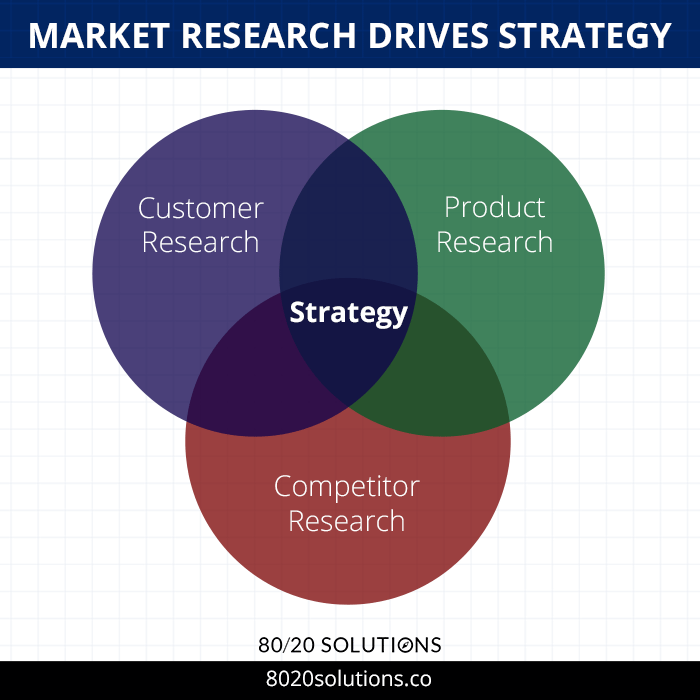If you have less than $2.1 billion, then the first rule of knowing your customer is not to do market research. Yes, you need to know your customer’s blood type, but your business will die a long (or fast) hard death if you try to copy the strategy of a Fortune 500 company. Their products, customers, markets, and respective timings are just a few factors in their revenue equations. Change just one factor in the equation by even a slight degree, and you change the result of their unseen business formula.
There is a better way. Before we cover what to do instead, we need to shed light on how market research can hurt your business. To do that, we’ll need to put the subject of our discussion under the microscope:
Market research is any organized effort to gather information about target markets or customers. It is a very important component of business strategy. [It] is a key factor in maintaining competitiveness over competitors.
– Wikipedia
Did you spot the problem?
Problem: “Any organized effort”
Being organized is easy.
Basecamp, Asana, Slack and a plethora of SaaS project management tools to “replace your email” are a dime a dozen. And, of course, there’s Gantt charts, Scrum methodology, Getting Things Done and, well, the point is Peter Drucker would be proud.
But measurement and management alone won’t grow your business. Organization alone, like Inbox Zero, puts the focus on the wrong thing. It’s not just about getting things done. It’s about getting the right things done.
To grow your online business, you can’t afford to waste time or money on “any organized effort.”
You need the right organized effort.
If you’ve got limited resources, then you’ll need to break market research into three chewable chunks that’ll feed your business:
- Customer research – to find the hidden motivations of who you sell to.
- Product research – to find the unsaid benefits of what you’re selling.
- Competitor research – to find the opportunities your competitors are ignoring.
Your winning business strategy lies at the intersection of all three.
Strategy means providing value to customers with unique products in a way that is different from your competitors.
– Michael Port, Harvard Business Review
To create a winning strategy for your next campaign or product launch, begin with the customer.
Next, we’ll do just that.










